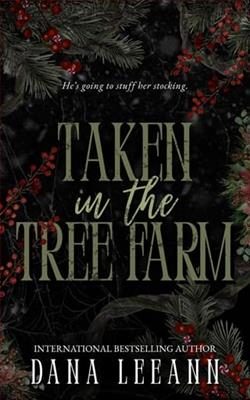Page 7 of Chasing Shadows
Tobias read the name again. Doughty. He knew the name. The man had attended both the Meryton assembly and the Netherfield ball. Four years earlier, he had been whispered about in the murder of a widower who was said to owe him. Nothing had been proved. The talk had died when the magistrate could not make it stand.
He set the paper on the table and placed a finger upon the name. He felt no triumph. Only a hard, steadying caution. It did not fit. He had already questioned Mr. Doughty over Tom Granger’s death. The alibi had been plain and supported. A public house near the turnpike. The landlord swore the man had taken more ale than was wise and fallen asleep before the hearth. Two waggoners, strangers to both, had lifted him clear of the settle and left him snoring on the sanded floor. He had not stirred till morning. It was not a tale men told to oblige a gentleman. It was rough, ordinary truth.
He folded the note and put it in his breast pocket. Then he took up his little book and wrote a line: “Mr. Doughty — three o’clock.” He added two brief questions beneath, no more. He never wrote everything in one place. That habit had served him.
He took his hat. He checked the latch of his small desk and pressed the lid down till it caught. In the drawer lay the handkerchief that had troubled him for days. He would not carry it now.
He had laid the matter before Mr. Jones on the morning following Wickham’s death. On the night itself, he could not in conscience press any question, for every hand had been bent on saving the officer’s life. When at last he approached the apothecary, it was with studied composure, as though the article were but a trifle of idle curiosity, bearing no connection to the crime. Yet he suspected Jones discerned more than was spoken. The man bent over it, drew in the faint trace, and in confidence pronounced the scent to be ether. Rare. Costly. Highly flammable. Employed chiefly in medical practice as an anaesthetic, and of little value to common households save where it might be misused as a soporific. Such a substance could not be procured in Meryton; it was dispatched from London and furnished only upon request. Aside from his own practice, Jones confessed he knew of no other who made use of it within the county. However, he promised to write to his supplier to inquire. Now the reply had come, and with it a name: Mr. Doughty.
Tobias left his lodging and took the lane toward the Green. He did not dawdle. He did not hurry. His stride was the same one he used for all business, firm and unremarkable. He nodded to a woman with a basket. He returned a boy’s grin with a warning look that sent the lad off at a trot. Nothing about him asked to be noticed.
He kept to the quieter side streets until the houses thinned. In his pocket his fingers found the little coil of twine he carried out of habit. He turned it once and let it lie. A small thing could be of use. It often had been.
He ordered his thoughts. Ether. Mr. Jones had said it belonged to medical men. To surgeons. To apothecaries. Tothose who eased pain or stilled a struggling patient. If such men kept it, others might steal it. A bottle could go missing from St. Albans. A vial might be lifted from a bag in a sickroom. A careless assistant might share what should not be shared. A thief might carry off a case under his arm in the dark. There were a dozen paths for such a substance to change hands. Doughty’s name on a supplier’s list proved only this: that Doughty had bought it. Or that someone claiming to be him had. It did not prove he had put it to wicked use. However, he couldn’t conclude until he questioned the man again.
He reached the last cottages. Beyond them the road narrowed and ran between hedges. Here, the wind laid dust in a fine skim over the ruts. Tobias marked his own step without seeming to do so. He made prints where the dust lay deeper. Forty paces later he glanced down. No second tread cut his line. It was a habit, nothing more.
He checked the time against the sun. He would reach Doughty within the hour if he kept the lane and turned by the old stones. He was not certain what he meant to do if the man met him with the same mild stare and the same full alibi. He would ask again. He would listen. Men repeated a lie with too much neatness. Truth was seldom neat.
He came to a field gate that sagged on its hinges. The hedgerow beyond threw shade across the road. The air cooled under it. He set his step into the cool and heard something behind him shift. Not a footfall. A small change, as if the lane itself had taken breath.
He did not stop. He adjusted his hat and let his head turn a fraction. The hedge to his left showed leaves still and bright. The hedge to his right showed a single twig newly stirred, then still again.
He went on. He counted a slow ten. At the tenth count he stooped and set his fingers to his boot as though to tighten thelace. He waited three beats longer than comfort required. The lane kept its peace. He rose.
A bend ahead made a brief blind. It was the sort where one might walk a quarter of an hour or more without meeting a soul. He did not like it, and would on any other day have chosen another path. He preferred the open ground, where a man might see who came behind. He touched the page in his pocket and felt the edge of the paper with the name upon it.
“Mr. Hatch.”
The voice came soft and level. Its coldness, joined with the stealth of its approach, told him at once who stood behind. It was the killer. He knew it instinctively. This was the very reason he had moved with such care since leaving home, and why he had spoken to no one of what he had found, nor where. The man had discovered his handkerchief was lost, Tobias thought. He had hoped it might be taken for a trifle dropped in haste, not known to have been seen and claimed by him.
He turned, knowing he must aim for the hand and not the face. There was no profit in seeking features when the assailant would assuredly strike with his hand.
Yet he turned too late. A gloved hand was already raised, a square of white cloth spread neat across the palm. It came against his mouth and nose with sure precision. The scent struck him at once, sweet and heavy, the same false sweetness that had clung to the handkerchief in his drawer.
He jerked his head aside and dragged in half a breath. He drove forward, meaning to pin the attacker to the hedge. The hedge tore his sleeve, sharp pain anchoring him. He stamped down hard on a foot. The handkerchief shifted a fraction.
He seized the wrist of the assailant with both hands. There was strength in it, controlled and steady, not brutish. He bent low, then snapped his head up, striking. The man grunted, but the cloth returned, patient and deliberate. Tobias ripped atthe glove, tearing a seam. He took it as proof he still had hold of himself.
He twisted, throwing his weight, trying to fall upon the pocket with the note. The man countered with a knee, forcing him back against the hedge. The cloth pressed again. The sweetness thickened in his throat.
He fought still — an elbow to the ribs, a clawing hand at the mask of his attacker, another wrench at the finger-joints — but his body began to falter, each order from his mind delayed, as though travelling too far.
His vision blurred. Still, he made himself think of the paper. The name. He raked once more at the glove, hoping to leave a mark the owner could not hide.
The cloth held fast. The strength in his arms ebbed first, then in his legs. The hedge pricked his back like a row of pins, keeping him upright a moment longer than he had earned. He wondered if his attacker was Richard Doughty. How could he know he was coming to question him? Had he been watching his every move since the murder of Wickham? The build was not unlike his, yet with the mask close upon the face, he could not be certain.
He tried to count one more time to keep himself aware of his surroundings. One. The paper. Two. The name. Three—
The number fled him.
Light tilted. The ground came fast. His last thought was not of his foe, but of the drawer at his desk, the cloth within, and the hope that someone would see what he had seen.
Then there was only quiet, complete and untroubled, as if the lane had never known a step upon it.
Chapter Five
The market at Meryton bore all its accustomed bustle. Carts rattled along the cobbles, their wheels splashing the mud from last night’s rain. Women leaned over stalls, fingering ribbons or pointing at fruit, while their voices rose in a hundred separate bargains. The air smelled of damp straw, fresh bread, and the faint iron tang of the butcher’s knives being sharpened.















